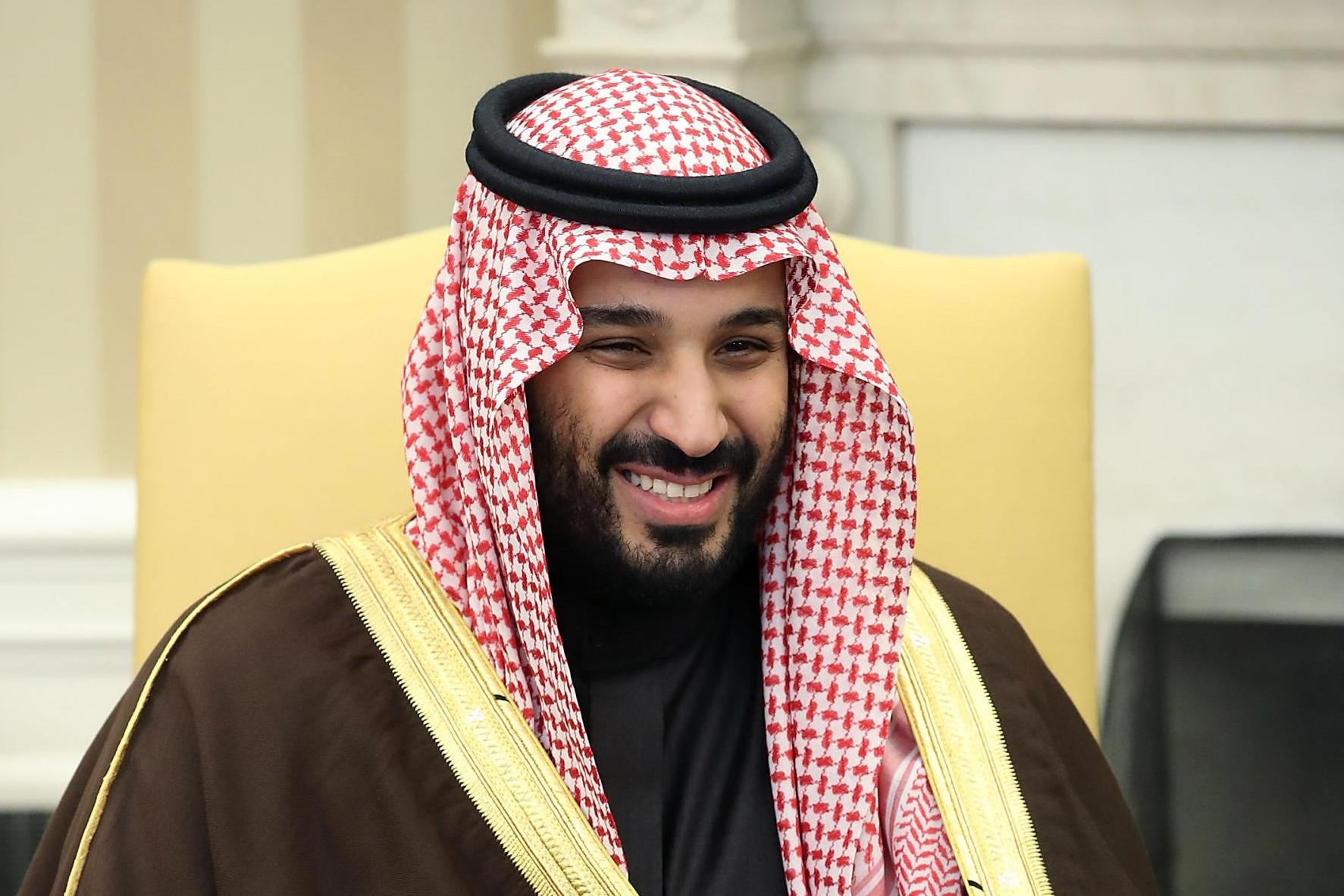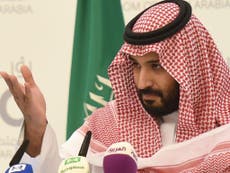When Mohammed bin Salman and Theresa May meet on Wednesday, they could set the scene for the end of the Syrian war
The May-Mohammed tag-team may not have the clout of the United States or China, but they certainly have the sway to pull exactly the right levers with each of the major players in Syria

When our Prime Minister and Saudi Arabia’s Crown Prince meet in London on Wednesday they could make noteworthy progress in the path towards resolving the conflict in Syria.
They both need to prove themselves to an audience that domestically is divided yet enthusiastic, and internationally is unsure or even sceptical.
Between them Theresa May and Mohammed bin Salman (MbS) have the rolodex to reach out to all the major players in Syria.
No one, of course, expects such seismic shifts this week. But there is every chance of them moving beyond the usual formalities of a Saudi visit to the UK: May and Prince Mohammed have a lot in common. They assumed their current positions through a combination of skill and the element of surprise. Both are respectful of their respective old guards whilst being fiercely independent and are ready to upset the status quo as and when needed.
Indeed, the status quo is in dire need of change in both their worlds. May inherited an unexpected and unplanned Brexit. MbS was handed a volatile and violent Middle East. They both live in rough geopolitical environments and they are determined to re-shape them.
The May-Mohammed tag-team may not have the clout of the United States or China, but they certainly have the sway to pull exactly the right levers with each of the major players in Syria, which is the epicentre of a full-fledged regional war.
Saudi Arabia has provided financial backing and logistical assistance to many disparate Syrian rebel groups from day one. It has been the most critical regional player in the international efforts to force the Assad regime to the negotiating table.
Some point towards an ideological affinity between the Saudi religious establishment and many of the rebel groups. If this ever was true, it certainly does not apply to the Saudi kingdom under MbS’ leadership, which is rapidly embracing a modern understanding of Islam.
Where MbS can influence the rebels, May can leverage Turkey, which has been forced to intervene in Syria to prevent Kurdish groups linked to the PKK terrorist organisation, from establishing a de facto state on Turkey’s borders.
The May Government enjoys good relations with the Erdogan government: they negotiated a £100m arms deal last year and are both managing “complicated” relationships between their own states and the EU.
In addition, May and many of her Conservative party colleagues do not share the fashionable knee-jerk support of PKK-aligned Kurdish militias in which many of her opponents on the British left indulge. Many of these Kurdish groups pay lip service to Marxism and are involved in human and drug trafficking networks and terror attacks.
London is one of the key bases for Kurdish activism in Europe, giving British security services influence over Kurdish militant networks. London can also adopt a similar attitude towards Hezbollah, without whom Assad’s forces would likely have lost Damascus long ago. So far, May’s Government has refused to ban Hezbollah’s “political branch” from the UK, which crucially, allows the group to raise funds. London thus enjoys serious leverage over the Hezbollah leadership as well as their sponsors in Tehran.
May’s influence doesn’t stop with Tehran. Putin wants EU sanctions against the Kremlin lifted, and she can credibly address Russian issues on a global stage with less baggage than her counterpart in the White House. The amount of Russian money in London could propel her to the role.
Working with MbS, May’s diplomacy can reach beyond Syria to another major regional conflict: Yemen. The British Government can use its influence through the defence industry, as well as the politically active Yemeni diaspora to try and bring an end to hostilities there.
Meanwhile, Saudi Arabia is positioning itself as an honest arbiter between Israel and the Arab world, and Britain’s historical responsibility for the situation there, coupled with the first ever official royal visit to Israel-Palestine, means greater foreign policy dividends for May.
It might sound ambitious and even fantastical. However, a strong UK-Saudi partnership can be quite transformative for the Middle East. May has nothing to lose. She – and our friends in Saudi – have a lot to gain. It might even be easier than Brexit.
Muddassar Ahmed is a former UK Government Advisor

